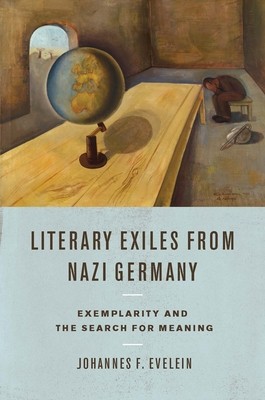
- We will send in 10–14 business days.
- Author: Johannes Evelein
- Publisher: Camden House (NY)
- ISBN-10: 1571135901
- ISBN-13: 9781571135902
- Format: 15.2 x 22.9 x 1.6 cm, hardcover
- Language: English
- SAVE -10% with code: EXTRA
Reviews
Description
Captures the learning process of Nazi-era literary exiles following in the footsteps of legendary literary exemplars of exile.
Exile is as old as humanity itself but a radically new fate for the "novice" exile, who falls into a world about which personal experience can tell him nothing. He does, however, know a great number of stories -- myths, legends, allegories, biblical or historical accounts -- about exile. The novice's search for a foothold initiates a learning process in which the exilic tradition assumes a major role. The present book captures this learning process: it is a cultural history of exile as it was experienced by thousands of German and Austrian writers and intellectuals who opposed National Socialism: among them Brecht, Canetti, Seghers, Remarque, the Manns, and Ludwig Marcuse. It shows how, slowly, exile becomes a reality through the growing awareness of -- and reference to -- the exemplary figures of a shared fate. Scores of fellow travelers, from the mythic figures Odysseus and Ahasverus ("The EternalJew") to writers such as Heinrich Heine and Victor Hugo, frame the experience of exile, imbuing it with meaning, giving it depth, and even elevating it to a "High Moral Office." They frequently make appearances in the narratives of the Nazi-era exiles. The Russian-American exile poet Joseph Brodsky called writers in exile "retrospective and retroactive beings." What their retrospective gazes yield as they search for meaning in banishment is at the heart ofthis book.. Johannes F. Evelein is Professor of Language and Culture Studies at Trinity College, Hartford, Connecticut.EXTRA 10 % discount with code: EXTRA
The promotion ends in 19d.21:48:14
The discount code is valid when purchasing from 10 €. Discounts do not stack.
- Author: Johannes Evelein
- Publisher: Camden House (NY)
- ISBN-10: 1571135901
- ISBN-13: 9781571135902
- Format: 15.2 x 22.9 x 1.6 cm, hardcover
- Language: English English
Captures the learning process of Nazi-era literary exiles following in the footsteps of legendary literary exemplars of exile.
Exile is as old as humanity itself but a radically new fate for the "novice" exile, who falls into a world about which personal experience can tell him nothing. He does, however, know a great number of stories -- myths, legends, allegories, biblical or historical accounts -- about exile. The novice's search for a foothold initiates a learning process in which the exilic tradition assumes a major role. The present book captures this learning process: it is a cultural history of exile as it was experienced by thousands of German and Austrian writers and intellectuals who opposed National Socialism: among them Brecht, Canetti, Seghers, Remarque, the Manns, and Ludwig Marcuse. It shows how, slowly, exile becomes a reality through the growing awareness of -- and reference to -- the exemplary figures of a shared fate. Scores of fellow travelers, from the mythic figures Odysseus and Ahasverus ("The EternalJew") to writers such as Heinrich Heine and Victor Hugo, frame the experience of exile, imbuing it with meaning, giving it depth, and even elevating it to a "High Moral Office." They frequently make appearances in the narratives of the Nazi-era exiles. The Russian-American exile poet Joseph Brodsky called writers in exile "retrospective and retroactive beings." What their retrospective gazes yield as they search for meaning in banishment is at the heart ofthis book.. Johannes F. Evelein is Professor of Language and Culture Studies at Trinity College, Hartford, Connecticut.

Reviews